 If watching the World Cup on TV, online or down the pub wasn’t enough, Microsoft can help you stay up to date with goal-by-goal action.
If watching the World Cup on TV, online or down the pub wasn’t enough, Microsoft can help you stay up to date with goal-by-goal action.
They’re providing a little app (3.5Mb) for Windows users called Microsoft Soccer Scoreboard. We’ll forget that to the rest of the world outside the US, the game is called Football, and focus on what it can do.
When you’ve downloaded it (after proving that you have ‘Genuine Windows’), the setup is minimal – choose your team; set how transparent you want the app to be; decide if you want automatic or manual data updates and specify an option RSS feed.
It’s a looker
It’s an attractive looking piece of software, which is slightly more that a one trick pony. The next match in your teams group will be shown, as is the current top four positions of the Group with the cumulative totals. Both of these have the option to view full details, which refreshes the screen in a scrollable window.
Scores of other matches scroll across the bottom of the window in a CNN stock price style.
Not missing a trick, they offer you the ‘opportunity’ of clicking on a link, taking you to MSN for further details.
 If you specify an RSS feed (Digital-Lifestyles, natch), the headlines from these are intermittently scrolled along the bottom too.
If you specify an RSS feed (Digital-Lifestyles, natch), the headlines from these are intermittently scrolled along the bottom too.
There’s also a compact mode that only displays the particular match that’s being played.
Use-by date
This software does have a use-by date. Clearly you’re not going to get any information updated after the World Cup ends on 9th July, because …. there’s no more matches being played.
Following this you’re going to have 7 days to obsessively click around the historic match information imagining ‘what if?”
Most refreshingly, on 31 July, the software will prompt you to uninstall the software.
Microsoft Live
Microsoft Live is something that Microsoft pushing really hard. They see it as a way to try and claw back some the gain that Google has had. This is being lead by
 Saturday saw anti-DRM protests at eight Apple stores across the USA organised by DefectiveByDesign, who are running an on-going ‘Campaign to Eliminate DRM.’
Saturday saw anti-DRM protests at eight Apple stores across the USA organised by DefectiveByDesign, who are running an on-going ‘Campaign to Eliminate DRM.’ List of Apple stores affected
List of Apple stores affected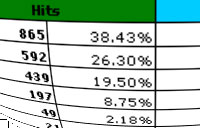 Google is ready to shove its size nines deep into Microsoft territory with the launch of a free Web-based spreadsheet program, Google Spreadsheets.
Google is ready to shove its size nines deep into Microsoft territory with the launch of a free Web-based spreadsheet program, Google Spreadsheets. He explained that the program’s main goal is to make it easier for family, friends or co-workers to read and work on the same spreadsheet from different computers at different times, letting authorised users add and edit data without having to keep sending e-mail attachments back and forth.
He explained that the program’s main goal is to make it easier for family, friends or co-workers to read and work on the same spreadsheet from different computers at different times, letting authorised users add and edit data without having to keep sending e-mail attachments back and forth. Nokia took a step into the world of online content delivery today with the launch of a new Website specialising in downloadable games for its N-Gage device. Gamers can download time-limited demos of games such as One and Pathway to Glory before purchasing at between 19.99 and 29.99 euros.
Nokia took a step into the world of online content delivery today with the launch of a new Website specialising in downloadable games for its N-Gage device. Gamers can download time-limited demos of games such as One and Pathway to Glory before purchasing at between 19.99 and 29.99 euros.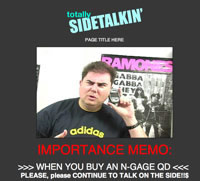 While the concept of side-talking may fuel nerd in-jokes for some time to come (see
While the concept of side-talking may fuel nerd in-jokes for some time to come (see 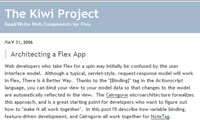 Adobe has made available a proof-of-concept version of their new productivity tool,
Adobe has made available a proof-of-concept version of their new productivity tool, 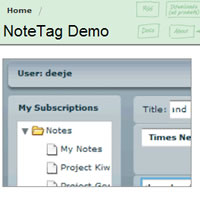 As bloggers
As bloggers 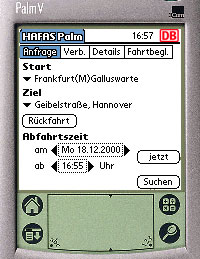 If you’re a regular train traveller across the UK, or you’re planning a holiday involving lots of different journeys, keeping track of all the various train times can be a bit of a pain.
If you’re a regular train traveller across the UK, or you’re planning a holiday involving lots of different journeys, keeping track of all the various train times can be a bit of a pain. Then it’s a case of bashing the ‘create’ buttom and waiting for a few minutes as the Teutonic technlogoy does it thing, before being presented with links to your timetable (you can elect to download the timetable directly from the site or have the files emailed to you).
Then it’s a case of bashing the ‘create’ buttom and waiting for a few minutes as the Teutonic technlogoy does it thing, before being presented with links to your timetable (you can elect to download the timetable directly from the site or have the files emailed to you).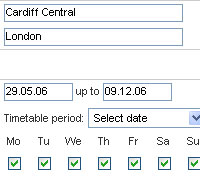 This small download provides a simple interface serving up enough timetable-related data to give train buffs a moist spot or two.
This small download provides a simple interface serving up enough timetable-related data to give train buffs a moist spot or two.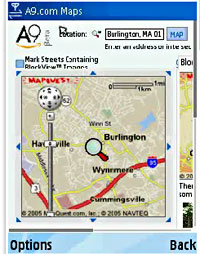 At the W3C conference in Edinburgh today, in a move to get the mobile industry (and possibly more) to standardise on a single Web browser, Nokia has released the source code for the mobile Web browser it developed last year.
At the W3C conference in Edinburgh today, in a move to get the mobile industry (and possibly more) to standardise on a single Web browser, Nokia has released the source code for the mobile Web browser it developed last year.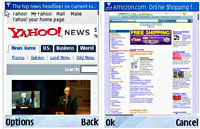 “We want to reduce the fragmentation currently in place in mobile browsing,” said Lee Epting, VP of Forum Nokia, Nokia’s software development support program.
“We want to reduce the fragmentation currently in place in mobile browsing,” said Lee Epting, VP of Forum Nokia, Nokia’s software development support program.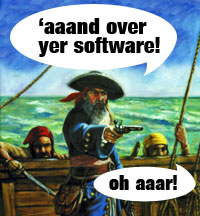 Over a third of all packaged software installed on PCs worldwide in 2005 was pirated, according to a study released by the Business Software Alliance (BSA), a trade group charged with fighting the use of unauthorised software.
Over a third of all packaged software installed on PCs worldwide in 2005 was pirated, according to a study released by the Business Software Alliance (BSA), a trade group charged with fighting the use of unauthorised software.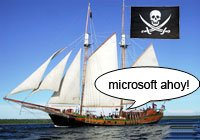 In fact, some have claimed that BSA’s accounting methods are so inaccurate that it amounts to scaremongering, especially when extrapolating figures from third world countries where just a few programs at full price would cost more than a citizen’s average annual income.
In fact, some have claimed that BSA’s accounting methods are so inaccurate that it amounts to scaremongering, especially when extrapolating figures from third world countries where just a few programs at full price would cost more than a citizen’s average annual income.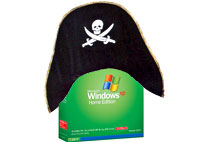 In third place was France which notched up losses of $3.2 billion, accompanied by a piracy rate of 47 percent, while in Brit-land, 27 per cent of PC software used in the UK was claimed to be illegal.
In third place was France which notched up losses of $3.2 billion, accompanied by a piracy rate of 47 percent, while in Brit-land, 27 per cent of PC software used in the UK was claimed to be illegal.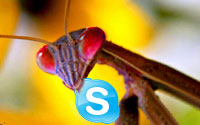 Skype users are advised to upgrade their software in double quick time after a security bug was reported late last week by a security researcher in New Zealand.
Skype users are advised to upgrade their software in double quick time after a security bug was reported late last week by a security researcher in New Zealand. The bug affects all releases of Skype for Windows up to and including version 2.0.x.104, as well as version 2.5.x.0 up to and including 2.5.x.78. Skype advised users to upgrade to Skype 2.5, release 2.5.x.79 or later, or Skype 2.0, release 2.0.x.105 or later.
The bug affects all releases of Skype for Windows up to and including version 2.0.x.104, as well as version 2.5.x.0 up to and including 2.5.x.78. Skype advised users to upgrade to Skype 2.5, release 2.5.x.79 or later, or Skype 2.0, release 2.0.x.105 or later. Much as we hate steenkin’ virus writers, we have to reluctantly take our hats off to the author of this Yahoo! Messenger Worm for at least being a bit original.
Much as we hate steenkin’ virus writers, we have to reluctantly take our hats off to the author of this Yahoo! Messenger Worm for at least being a bit original. Once installed, the browser opens up a user’s PC to a world of nasties, switching on pop-ups by default, hijacking their Internet Explorer homepage to point to a well-iffy site stuffed full of spyware-loaded links and, curiously, introducing an awful looped music track that plays every time the computer is turned on.
Once installed, the browser opens up a user’s PC to a world of nasties, switching on pop-ups by default, hijacking their Internet Explorer homepage to point to a well-iffy site stuffed full of spyware-loaded links and, curiously, introducing an awful looped music track that plays every time the computer is turned on.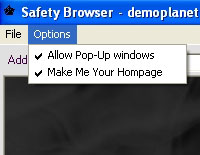 “This is the first instance of a complete Web browser hijack without the user’s awareness,” said Tyler Wells.
“This is the first instance of a complete Web browser hijack without the user’s awareness,” said Tyler Wells.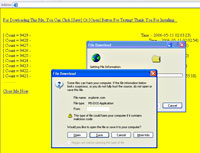 The worm was found by the India research arm of
The worm was found by the India research arm of